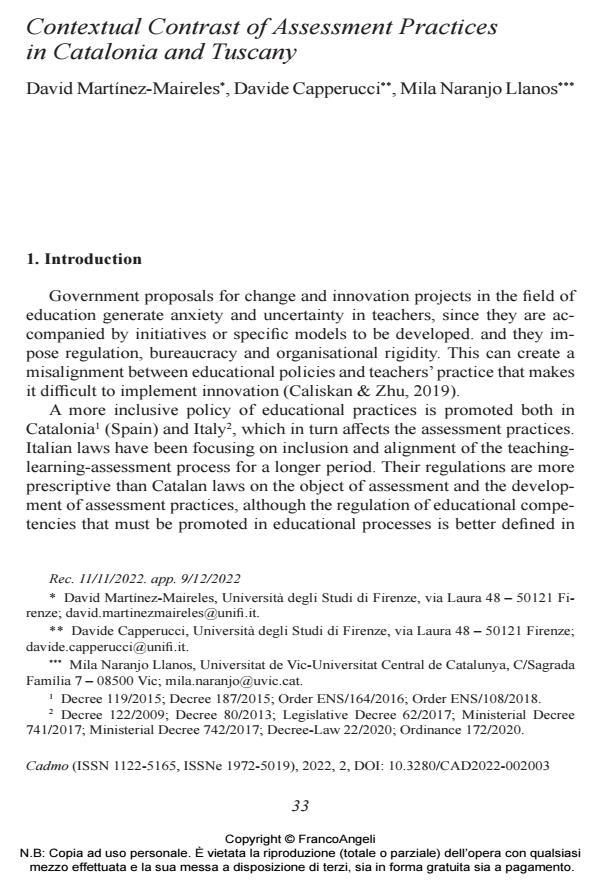Contextual Contrast of Assessment Practices in Catalonia and Tuscany
Titolo Rivista CADMO
Autori/Curatori David Martínez-Maireles, Davide Capperucci, Mila Naranjo Llanos
Anno di pubblicazione 2023 Fascicolo 2022/2
Lingua Inglese Numero pagine 22 P. 33-54 Dimensione file 267 KB
DOI 10.3280/CAD2022-002003
Il DOI è il codice a barre della proprietà intellettuale: per saperne di più
clicca qui
Qui sotto puoi vedere in anteprima la prima pagina di questo articolo.
Se questo articolo ti interessa, lo puoi acquistare (e scaricare in formato pdf) seguendo le facili indicazioni per acquistare il download credit. Acquista Download Credits per scaricare questo Articolo in formato PDF

FrancoAngeli è membro della Publishers International Linking Association, Inc (PILA), associazione indipendente e non profit per facilitare (attraverso i servizi tecnologici implementati da CrossRef.org) l’accesso degli studiosi ai contenuti digitali nelle pubblicazioni professionali e scientifiche.
For teachers, assessment practices continue to be an aspect of the edu- cational process that presents certain difficulties, which is why in many countries regulation at different levels has been proposed. This article pro- poses a descriptive analysis of the assessment practices of pre-school, pri- mary and secondary school teachers of seven schools in Catalonia (Spain) and four in Tuscany (Italy). The study focuses on three criteria for the planning and development of assessment practices: the perception of im- portance, competence and use. The most relevant results of this study us- ing the ActEval assessment practices questionnaire (Quesada et al., 2013) show low student participation and coordination between teachers in the planning and implementation of the assessment practices in both regions. As a general conclusion, there is greater alignment between the three crite- ria in Tuscany than in Catalonia.
Parole chiave:assessment practices, assessment planning, assessment innova- tion, student participation, assessment competence.
David Martínez-Maireles, Davide Capperucci, Mila Naranjo Llanos, Contextual Contrast of Assessment Practices in Catalonia and Tuscany in "CADMO" 2/2022, pp 33-54, DOI: 10.3280/CAD2022-002003